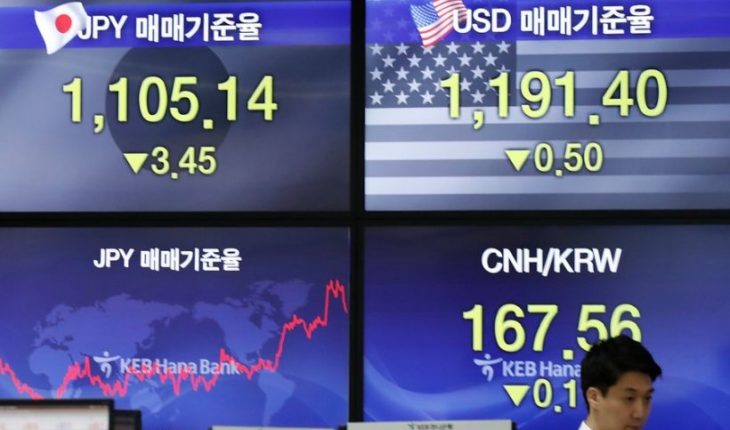The Organisation for Economic Co-operation and Development (OECD) has revised downward the outlook for global growth for 2019 and 2020, to its lowest level in a decade, due to economic and political uncertainty, as the IMF has in September update of its biannual ‘Economic Outlook’ report.
In particular, the OECD has revised global gross domestic product (GDP) growth by 2.9% for 2019, three tenths less, while the 2020 adjustment was four-tenths to 3%.
“The global outlook has become increasingly fragile and uncertain,” said the Paris-based body, adding that downside risks “continue to pile up.”
Thus, the OECD has explained that the “intensification” of trade policy tensions is increasingly affecting confidence and investment, which in turn adds to political uncertainty, affects the sense of risk in financial markets and ” the prospects for future growth.
The rebate of the pronostics has been widespread. The institution now estimates that the euro area will increase its combined GDP by 1.1% in 2019, a tenth less, while growth in 2020 will be 1%, four-tenths less. The revision of the bloc of countries that use the euro as a common currency is mainly due to Germany, whose economy will grow by 0.5% in 2019, two tenths less than previously envisaged. France’s growth for this year has remained at 1.3%, while in Italy, which will see stagnation, forecasts are also maintained.
By 2020, the OECD has downgraded Germany’s GDP growth to 0.6%, six-tenths less. France, on its side, will grow by 1.2%, a tenth less, and Italy will record a 0.4% advance, two tenths less.
The organization chaired by Angel Gurría has warned that manufacturing activity is at its lowest level in seven years, while industrial activity is being particularly affected by trade tensions. The activity of the services sector, on the other hand, has managed to be maintained, due to improvements in the labour market and the support of fiscal policies.
For the rest of the major economies, the United States will end 2019 with economic growth of 2.4%, four-tenths less, while by 2020 the OECD has revised its forecast to 2%, three tenths less than the previously estimated figure. The UK will grow by 1% in 2019, two-tenths less, and 0.9% in 2020, a tenth less. Japan, on the other hand, has undergone an upward revision of three tenths for this year, to 1%, while by 2020 the estimate of 0.6% has not changed.
Among major emerging countries and developing economies, China will grow by 6.1% in 2019, a tenth less, and 5.7% in 2020, three-tenths less. Turkey will see a three-tenth contraction this year, an improvement of 2.3 percentage points from the previous estimate, although by 2020 it has remained unchanged at 1.6%.
The biggest revisions have been for Argentina, whose GDP will be reduced by 2.7% this year, nine-tenths more, by the new depreciation of the peso, high inflation and capital controls. By 2020, the adjustment was 3.9 percentage points downwards, to a 1.8% contraction.
Monetary policy is depleted
With regard to the long-term outlook, the OECD has warned that the economic and financial situation suggests that the “widespread moderation” of GDP and trade growth “possibly persists longer than previously anticipated”.
In this sense, low interest rates should be used to “cushion” the impact of the slowdown, even though the impact of the money price change will be “modest,” especially in advanced economies.
The OECD agrees with the diagnosis of the European Central Bank (ECB), which has repeatedly reiterated that its measures would be amplified if supported by fiscal measures and structural reforms.
“Fiscal policy should help raise short-term growth by using exceptionally low interest rates, especially through spending measures such as increased investment in infrastructure that raises demand in the short term and benefits long-term growth,” said the developed country club.





